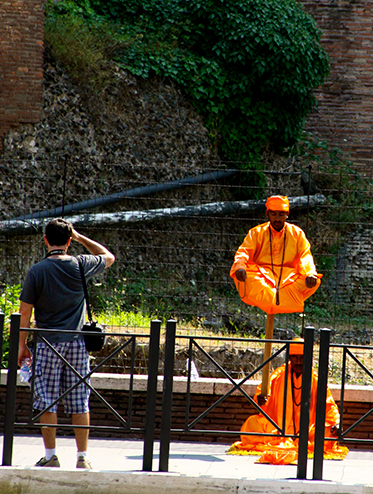Cultural Identity
Tourism can be a positive influence on native communities. Visiting archaeological sites, cultural heritage sites, museums, and interacting with the local population can enrich the mind of tourists and also encourage local pride. Support and preservation of cultural heritage becomes an important role in the economy.
The profitability of tourism lures many communities into sacrificing their traditional activities for imitation ones. Locals are sometimes forced to abandon their skill or trade and sell goods demanded by tourists. Displacement of the workforce is an unfortunate issue that host communities are dealt in the transition of becoming a booming tourist economy.
Cultural identity must be protected and locals should be encouraged to continue their traditions in the wake of tourism. There should be a balance between opportunity and preservation of cultural identity.
As a tourist, your goal should be to avoid participation in events, excursions, activities, and markets that are not locally supported. This is hard to discern at times. Try to buy goods from native craftsmen and certified artisan shops, rather than buying mass produced items which are often imitation handicrafts made in Asia.
Do some research on the areas you plan to travel. Act like an anthropologist and talk to the local people about their culture. Ask them which goods or events are authentic and which are “just for tourists”. People love to talk about their heritage and asking the right questions can help guide you in your activities.
As you interact with others throughout your travel experience, there is reciprocated learning taking place. While you are experiencing new values, habits, and customs of the host community, your own personal value system and identity are exchanged with those you visit. We must be responsible in our actions.
“Preservation of one’s own culture does not require contempt or disrespect for other cultures.” - Cesar Chavez

